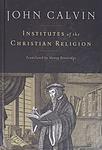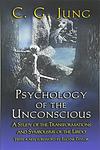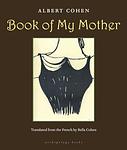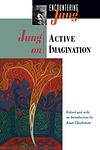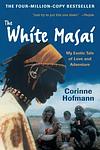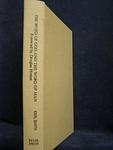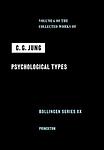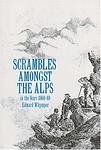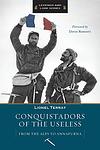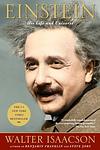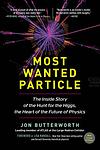The Greatest "Nonfiction, Switzerland" Books of All Time
Click to learn how this list is calculated.
This list represents a comprehensive and trusted collection of the greatest books. Developed through a specialized algorithm, it brings together 300 'best of' book lists to form a definitive guide to the world's most acclaimed books. For those interested in how these books are chosen, additional details can be found on the rankings page.
Genres
Countries
Date Range
Reading Statistics
Click the button below to see how many of these books you've read!
Download
If you're interested in downloading this list as a CSV file for use in a spreadsheet application, you can easily do so by clicking the button below. Please note that to ensure a manageable file size and faster download, the CSV will include details for only the first 500 books.
Download-
1. Relativity by Albert Einstein
This book is a comprehensive introduction to the theory of relativity written by the physicist who developed the theory. It covers both the special and general theories of relativity and provides an accessible explanation of the physics involved, including the nature of light, time, and gravity. The book also discusses the philosophical implications of relativity and its impact on our understanding of reality. Written for a general audience, it aims to make complex scientific concepts understandable to non-experts.
-
2. Memories, Dreams, Reflections by Carl Jung
This book is an autobiography of a renowned psychologist who shares his life experiences, insights, and the development of his theories. The narrative delves into his childhood, his career, his relationship with Sigmund Freud, and his exploration into the human psyche. It also provides an in-depth look at the author's dreams and visions, which greatly influenced his work, and his thoughts on subjects such as life after death, reincarnation, and the collective unconscious.
-
3. Institutes of the Christian Religion by John Calvin
This book is a comprehensive introduction to Christian theology and doctrine, written during the Protestant Reformation. The text outlines the author's views on subjects such as the nature of God, the authority of scripture, original sin, and salvation through Christ. The book also provides a detailed examination of the Ten Commandments and the Apostles' Creed, while offering a critique of the Catholic Church and its practices. The author's interpretation of Christianity, as presented in this work, has had a significant influence on the development of Protestant theology, particularly within Reformed churches.
-
4. Memories And Commentaries by Igor Stravinsky
"Memories and Commentaries" is a reflective work that offers a window into the mind of one of the 20th century's most influential composers. Through a series of personal recollections and insights, the book delves into the author's artistic journey, his relationships with other prominent figures in the world of music and art, and his philosophical musings on the nature of creativity. The narrative weaves together anecdotes from the composer's life, discussions on his own compositions and musical techniques, as well as his opinions on the works of his contemporaries, providing readers with an intimate portrait of a man whose legacy continues to shape the landscape of classical music.
-
5. Grid Systems In Graphic Design by Josef Müller-Brockmann
This book is a seminal guide to graphic design and typographic composition, focusing on the use of grid systems as a foundational tool for ensuring visual coherence and hierarchy across various design projects. It provides designers with a methodical approach to organizing text and images in a clean, logical, and aesthetically pleasing manner. Through systematic arrangement, the grid serves as an essential framework that can be applied to a wide range of design work, from print media to digital interfaces. The book delves into the principles, applications, and benefits of grid systems, offering practical advice, examples, and clear illustrations to help designers harness the power of grids to create effective, impactful visual communications.
-
6. Ideas and Opinions by Albert Einstein
This book is a collection of essays, letters, and speeches from a renowned physicist, offering his thoughts on a wide range of topics. It includes his insights on science, philosophy, religion, politics, peace, education, liberty, and morality. The physicist's reflections on his own scientific discoveries and the theories of other great thinkers are also discussed. This compilation provides a comprehensive view of his intellectual development and personal beliefs.
-
7. Tongue Set Free by Elias Canetti
"Tongue Set Free" is a captivating memoir that explores the author's personal journey of self-discovery and identity formation. Through vivid and introspective storytelling, the book delves into the complexities of Canetti's multicultural upbringing, his struggles with language and communication, and his quest for freedom and belonging. With poetic prose and profound insights, the author reflects on the power of words, the influence of cultural heritage, and the transformative nature of embracing one's true self.
-
8. Judgement and Reasoning in the Child by Jean Piaget
This book is a seminal work in the field of child psychology, exploring the ways in which children develop their cognitive abilities and reasoning skills. The author delves into the mental processes of children, focusing on how they form judgments, understand cause and effect, and develop logical thinking. The book also discusses the stages of cognitive development, highlighting the shift from intuitive to logical thinking. This influential work has greatly contributed to our understanding of child development and education.
-
9. Psychology of the Unconscious by Carl Jung
"Psychology of the Unconscious" is a pioneering work that explores the complex landscape of the human unconscious, introducing theories that would later become central to understanding personality and human psychology. The book delves into the idea of the collective unconscious, archetypes, and the process of individuation. It further discusses the role of dreams, myths, and symbols in understanding and interpreting the unconscious mind. The author uses case studies and examples from various cultures to support his theories, offering a comprehensive view of the human psyche.
-
10. Man and His Symbols by Carl Jung
This book is a comprehensive introduction to the world of depth psychology, exploring the significance of dreams, art, and symbols in everyday life. The author and his colleagues delve into the unconscious mind, discussing its influence on our thoughts, behaviors, and experiences. The book emphasizes the importance of understanding and interpreting symbols as a means to gain insights into our unconscious motivations, fears, and desires. It also discusses the role of archetypes and collective unconscious in shaping human behavior and culture.
-
11. Dogmatics In Outline by Karl Barth
"Dogmatics in Outline" presents a concise exploration of Christian doctrine, framed by the Apostles' Creed and derived from lectures delivered in the aftermath of World War II. The text distills the essence of Christian faith, emphasizing the centrality of Jesus Christ in theology and the importance of the Church's teaching tradition. The author argues for a dynamic and living engagement with the Christian message, rejecting both rigid orthodoxy and vague liberalism, and advocating for a theology that is both faithful to the historical teachings of the Church and responsive to contemporary human experience.
-
12. Book Of My Mother by Albert Cohen
This poignant memoir serves as a tender homage to the author's late mother, exploring the depths of maternal love and the profound sense of loss following her passing. Through a series of reflective vignettes and personal recollections, the narrative delves into the complex relationship between mother and son, marked by both deep affection and the inevitable strains of growing independence. The author grapples with guilt and regret over his perceived shortcomings as a son, while celebrating the enduring impact of his mother's love and the indelible mark it left on his life. The work stands as a universal meditation on grief, memory, and the unbreakable bonds of family.
-
13. The Course In General Linguistics by Ferdinand de Saussure
"The Course in General Linguistics" is a foundational text in the field of linguistics that outlines the principles of structural linguistics and introduces key concepts such as the linguistic sign, the distinction between langue (language as a system) and parole (language as used in context), and the idea of synchronic versus diachronic analysis. The work emphasizes the arbitrary nature of the sign, which consists of the signifier (the form of the word or phrase) and the signified (the conceptual meaning). This book, compiled from notes by students from the lectures given by its author, has had a profound impact on the development of linguistic theory and has influenced various other disciplines, including anthropology, psychology, and literary theory.
-
14. Footsteps by Richard Holmes
"Footsteps" is a captivating blend of biography and travel literature, where the author retraces the journeys of various literary figures to better understand their lives and works. Through his explorations, he follows in the footsteps of authors such as Robert Louis Stevenson, Mary Wollstonecraft, and Percy Bysshe Shelley, visiting the places they lived and wrote about. This immersive approach allows the author to delve deeply into the historical and emotional landscapes that shaped these writers, blending rich narrative with scholarly insights to offer a unique perspective on both the subjects and their settings.
-
15. Two Essays on Analytical Psychology by Carl Jung
This book contains two comprehensive essays that delve into the depths of analytical psychology. The first essay explores the role of the unconscious in the human psyche, discussing its influence on dreams, mythology, and mental illnesses. The second essay delves into the process of individuation, which is the psychological process of integrating the conscious and unconscious parts of the mind to achieve self-actualization. This work is a foundational text in understanding the theories and concepts of analytical psychology.
-
16. The Portable Jung by Carl Jung
"The Portable Jung" is a comprehensive collection that encapsulates the core ideas of analytical psychology, as developed by its founder. The book offers a selection of writings that delve into the concepts of the collective unconscious, archetypes, dreams, and individuation. It serves as an accessible introduction to Jung's transformative ideas on the psyche, providing readers with insights into the depths of human behavior and the psychological underpinnings that influence personal growth and understanding. This compilation not only highlights Jung's profound influence on psychology but also his interdisciplinary reach into areas such as mythology, religion, and culture.
-
17. The White Masai by Corinne Hofmann
The book is a true story of a Swiss woman who, while on holiday in Kenya, falls in love with a Samburu warrior. Defying her family, friends, and cultural norms, she decides to leave her life in Switzerland behind to marry him and live in his remote village. The narrative delves into her challenging and transformative journey as she adapts to a vastly different culture, learns the local customs, and navigates the complexities of her interracial marriage and the community's expectations. Her story is one of love, resilience, and the pursuit of happiness in the face of extraordinary cultural differences.
-
18. Seven Dada Manifestoes by Tristan Tzara
This book is a collection of manifestos that serve as a seminal document in the history of the Dada movement, an avant-garde art movement of the early 20th century. The texts within are a blend of satire, polemic, and absurdity, reflecting the movement's disdain for the norms of bourgeois culture and traditional aesthetics. The author, a key figure in Dadaism, uses these manifestos to challenge concepts of art, literature, and politics, advocating for chaos and spontaneity over logic and reason. The work is both a philosophical treatise and a call to arms, encouraging the reader to question the status quo and embrace the liberating power of nonconformity and irrationality.
-
19. The Word of God and the Word of Man by Karl Barth
This book presents a series of sermons that challenge the traditional religious understanding of the time. The author argues that the word of God should not be confined to the Bible alone, but should also include the divine revelation through Jesus Christ. He emphasizes the importance of faith and the need for a personal relationship with God, while criticizing the church for its institutionalization and its focus on rituals and dogma. The book is considered a cornerstone in the development of neo-orthodox theology.
-
20. Psychological Types by Carl Jung
"Psychological Types" is a seminal work that delves into the theory of psychological types, positing that there are fundamental differences in the way individuals perceive and interpret the world. The book introduces the concept of introverted and extroverted personality types, along with the four psychological functions of thinking, feeling, sensation, and intuition. The author argues that these personality types and functions shape our attitudes and behaviors, leading to different ways of interacting with and understanding the world around us.
-
21. Scrambles Amongst the Alps by Edward Whymper
This book is a captivating account of the author's various climbing expeditions in the Alps during the mid-19th century, including his successful ascent of the Matterhorn, one of the highest peaks in the Alps. The author shares his experiences, challenges, and the tragic loss of four of his companions during the descent from the Matterhorn, in a vivid, engaging style. The book also contains valuable insights into mountaineering techniques, equipment, and safety measures of the time.
-
22. Conquistadors of the Useless by Lionel Terray
"Conquistadors of the Useless" is a riveting memoir of a renowned mountain climber, sharing his thrilling experiences in the world of mountaineering. The book takes the reader on a journey through some of the most challenging and dangerous climbs, including the first ascents of Annapurna and Makalu. The author also provides a profound insight into the psyche of climbers, the risks they take, and the reasons behind their seemingly irrational passion for climbing. The book is not just about climbing but also about the human spirit and its relentless pursuit of achievement.
-
23. Einstein by Walter Isaacson
This biography provides an in-depth look at the life of one of history's most brilliant minds, delving into not only his groundbreaking contributions to physics, including the theory of relativity, but also his personal life, political views, and philosophical beliefs. The author meticulously chronicles the journey of a patent clerk who evolved into a Nobel Prize-winning physicist, exploring how his rebellious nature, intellectual curiosity, and persistence in questioning established norms led to some of the most revolutionary scientific discoveries of the 20th century. Through a wealth of personal letters and interviews, the book paints a comprehensive picture of a man who, beyond his scientific genius, was deeply involved in social and political issues of his time, including Zionism and pacifism, showcasing his enduring impact on both science and society.
-
24. Most Wanted Particle by Jon Butterworth
"Most Wanted Particle" is an engaging exploration of the world of particle physics, centering on the discovery of the Higgs boson at the Large Hadron Collider (LHC). Written by a leading physicist involved in the search, the book offers a firsthand account of the challenges, triumphs, and day-to-day workings at CERN, one of the world's largest and most respected centers for scientific research. The narrative demystifies complex scientific concepts and provides insights into the collaborative nature of scientific discovery, the excitement of confirming theoretical predictions, and the ongoing quest to understand the fundamental components of the universe.
-
25. Mistress to an Age: A Life of Madame De Stael by J. Christopher Herold
"Mistress to an Age: A Life of Madame De Stael" is a comprehensive biography of Germaine de Stael, one of the most influential women of the 18th and 19th centuries. The book delves into her role as a prominent writer, intellectual, and political activist during the French Revolution and Napoleonic era. It also explores her personal life, detailing her tumultuous relationships, her exile from Paris, and her influential salon that attracted many of the era's leading intellectuals and artists.
Reading Statistics
Click the button below to see how many of these books you've read!
Download
If you're interested in downloading this list as a CSV file for use in a spreadsheet application, you can easily do so by clicking the button below. Please note that to ensure a manageable file size and faster download, the CSV will include details for only the first 500 books.
Download

